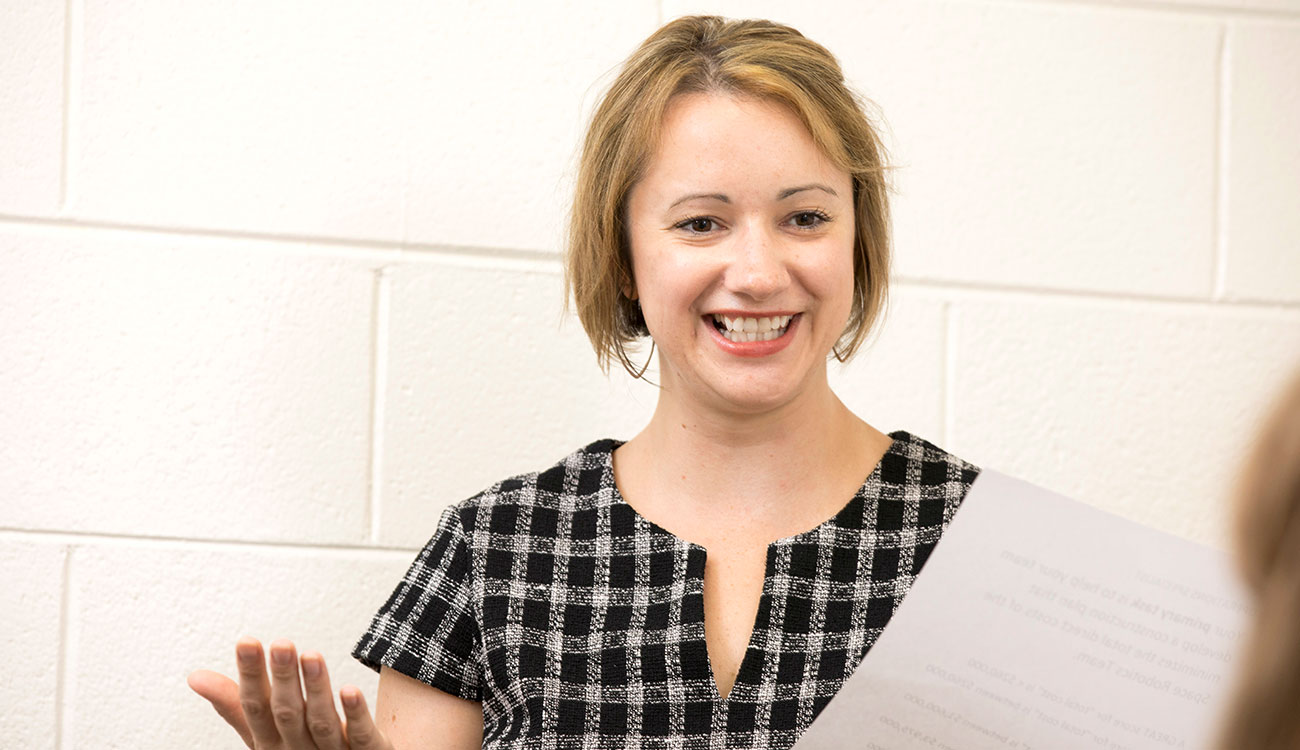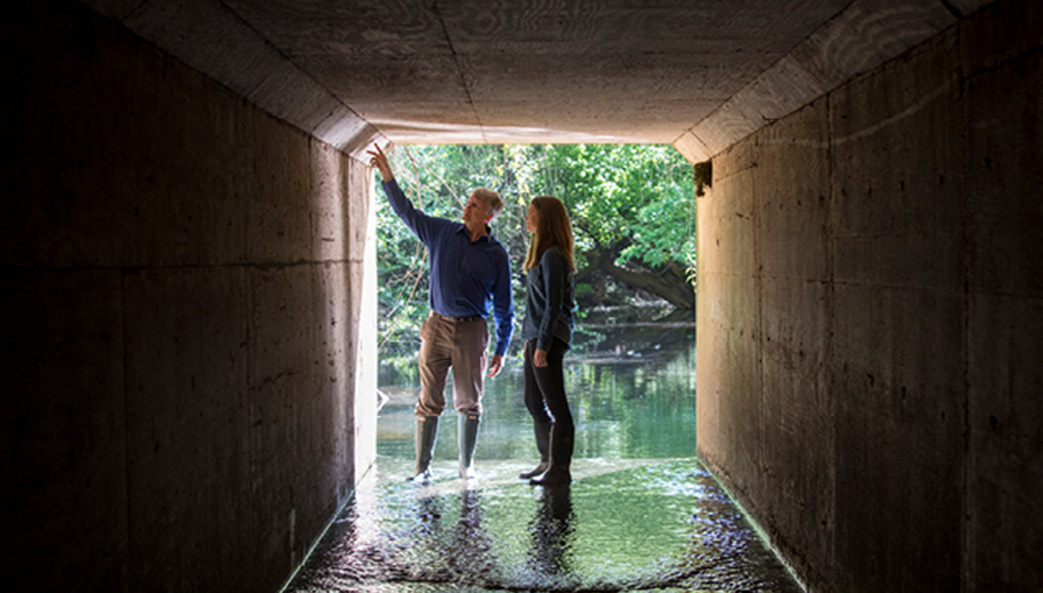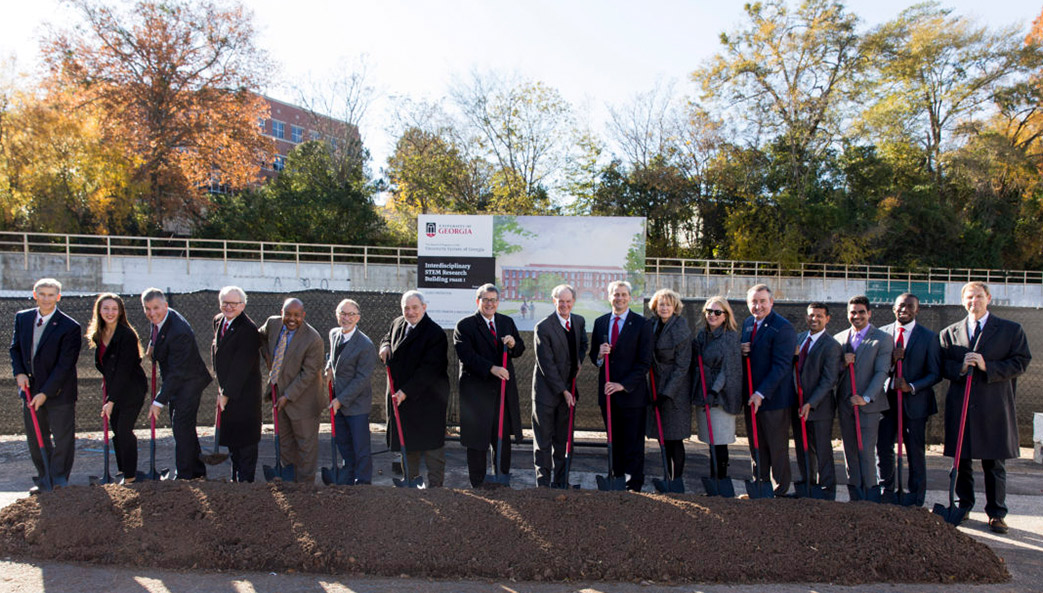Dorothy Carter spends her days developing strategies that can help astronauts prepare for missions to Mars, assist military leaders in maximizing their troops’ performance, and coach corporate leaders to optimize organizational plans.
It’s not what she thought she would be doing in the early 2000s when she was a professional dancer for a ballet company in Ohio.
But, her long-range future was limited, she realized then.
“There was no real long-term career path, so I thought I should probably go to college,” said Carter, assistant professor of psychology in the Franklin College of Arts and Sciences.
Now an industrial-organizational psychologist, Carter directs UGA’s Leadership, Innovation, Networks and Collaboration Laboratory, which seeks to uncover factors that enable groups to tackle complex challenges.
“Industrial-organizational psychology is the application of the psychological principles and understanding of humans in the workplace,” Carter said.
Her research on team dynamics and leadership earned her UGA’s 2020 Charles B. Knapp Early Career Scholar Award in recognition of her potential impact in the social and behavioral sciences. She currently has research grants from NASA, the U.S. Army Research Institute, the National Science Foundation and the National Institutes of Health.
“My research is focused on leadership and team collaboration on a large scale. We investigate what makes multiple groups work together effectively as part of large interdependent systems,” Carter said. “A lot of our greatest challenges as a society require that kind of large-scale collaboration, but it often goes against what we are naturally built to do as humans. We tend to form our clubs and stick with them and don’t really collaborate across boundaries. My research focuses on that basic idea of leadership and large-scale collaboration across different contexts.”
Carter took the long road to finding her long-term career track. Her father was a systems analyst and mathematician, while her mother was a writer and educational testing center coordinator. Carter, having taken ballet classes since pre-school, wanted to be a dancer. She was good enough to dance for several years with ballet companies from Texas to Colorado to Ohio.
In 2005, after deciding she needed to change careers, Carter took full advantage of Wright State University’s open-door enrollment policy, and the educational pieces quickly fell into place. She became interested in psychology “because it is applicable to literally everything we do,” while also pursuing a business management minor inspired by her struggles to manage a team of young employees at an ice cream store while putting herself through college.
“Through mentoring from some really excellent professors, I realized there was a field of I-O psychology that kind of merges those two interests in psychology and business management,” said Carter, who came to UGA in fall 2015 shortly before completing her Ph.D. in I-O psychology at Georgia Tech in spring 2016.
Industrial-organizational psychology emerged in the early 1900s and found swift application during the two World Wars as the U.S. military faced the challenge of deploying large numbers of troops with diverse abilities to places where they were most needed and useful. It has since developed into a field that allows Carter to play games with NASA volunteers living inside a closed capsule for 45 days, assess data from battlefield sensor technologies, or survey senior business professionals—all in pursuit of discovering the critical human elements that link every interdependent human relationship.
“The biggest question that drives my lab’s research is that we know effective collaboration is necessary to accomplish big goals, but it doesn’t always happen—we can all think of instances where the sum is NOT greater than its parts” Carter said. “Some memorable instances in space flight include the Mars climate orbiter crashing into the planet’s surface because one part of the system was using metric and another was using inches and miles. The problems we see in small teams are often compounded in bigger, more complex systems.”
For example, “members of different teams may have philosophical differences or work at cross purposes while competing for their own priorities,” she said.
Carter’s work aims to answer fundamental questions about the drivers of team and multiteam system effectiveness. With the U.S. Army, she seeks to enhance military team staffing decisions. Her NSF-funded project conducts surveys with and provides feedback to senior-level executives about the teamwork processes needed to ensure strategic effectiveness. Her research has already made an impact across a range of disciplines, including psychology, management, communications and medicine.
Her NASA grant is a fascinating application of I-O psychology on the complex goal of deep-space exploration, where precise collaboration is critical across time and space. The research incorporates archival, observational and experimental data collected from mission control, the International Space Station, moon missions and experiments with “human lab rats” spending 45 days in isolated capsules. To simulate the challenges a crew will face as it travels farther and farther away from Earth, Carter’s undergraduate students try to solve complex puzzles with simulation volunteers as their dialogue changes from synchronous to 1- and 3-minute lags between responses.
“The practical goal is to give NASA a toolkit of interventions that can facilitate their collaboration—training programs, debriefing protocols, a way to map the patterns of cooperation that need to happen,” Carter said.
Carter is also turning her research lens inward at UGA. She’s working with Larry Hornak, an associate vice president for integrative team initiatives in the Office of Research, to develop programs focused on interdisciplinary team research and leadership training for researchers on campus.
“I think it has potential to have a big impact, applying what we’re learning about teams and leadership to the scientific/academic realm,” Carter said.






